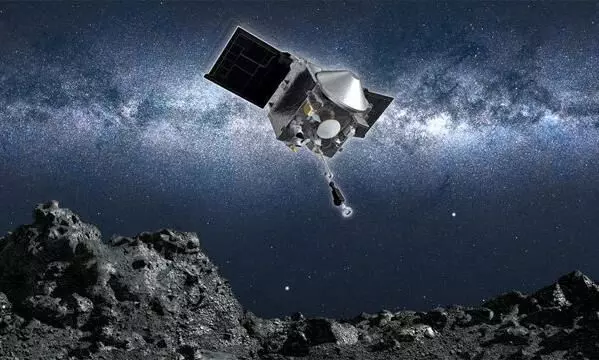
NASA's OSIRIS-REx set to return Earth with 1st-ever asteroid samples
text_fieldsSan Francisco: NASA’s OSIRIS-Rex (Origins, Spectral Interpretation, Resource Identification, and Security-Regolith Explorer) is all set to return to Earth on September 24 with the first-ever US asteroid sample.
OSIRIS-Rex, the first US mission to collect a sample from an asteroid, is carrying an estimated 8.8 ounces of rocky material collected from the surface of the asteroid Bennu about two years ago.
According to reports, the asteroid sample capsule is scheduled to land in a Utah desert in the US on Sunday at 8.25 p.m. IST (8.55 a.m. MDT).
After seven years in space, the mission is now facing one of its most difficult challenges, returning the samples to Earth.
According to the report, the spacecraft itself won't enter the planet's atmosphere, but it will drop off a parcel in a precise trajectory to make it land in the Utah desert. While transporting the sample, the capsule must shield it from heat, vibrations, and contamination from our planet.
For an accurate "parcel drop," the spacecraft must follow a precise path and velocity. If the capsule is dropped at an angle too steep, it will skip off the planet's atmosphere like a rock across a river. This would send the samples into space, where they could not be recovered. If the capsule is angled too low, it will burn up in the atmosphere of Earth, the report explained.
These samples carried by the OSIRIS-REx mission are important because asteroids such as Bennu can act as a "time capsule" for our solar system's earliest history.
The asteroid sample will help researchers learn about how our planet and solar system formed, as well as the origin of organics that may have led to life on Earth.
Once retrieved, the sample will be documented, cared for, at NASA’s Johnson Space Center in Houston, and later distributed for analysis to scientists worldwide.
With inputs from IANS






















